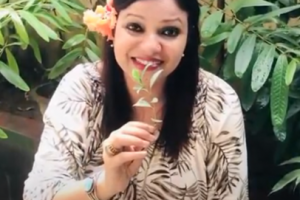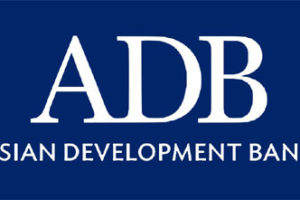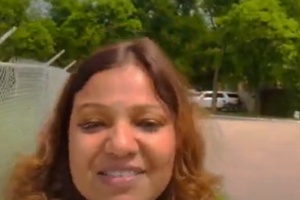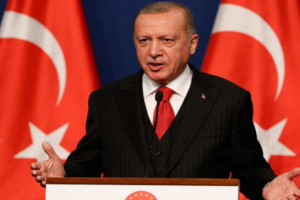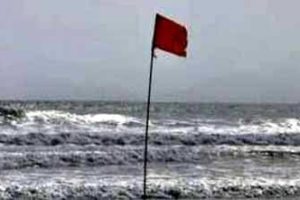The decisions came after the Kremlin announced the ejection of three European envoys last week, saying they had attended rallies in support of the opposition leader Aleksei A. Navalny.
The Russian Embassy in Berlin. The tit-for-tat expulsions on Monday heightened tensions between the European Union and Moscow.
Germany, Poland and Sweden announced a coordinated, tit-for-tat expulsion of three Russian diplomats on Monday, in retaliation for Moscow’s decision last week to expel diplomats from the three countries for monitoring the protests that followed the jailing of the opposition leader Aleksei A. Navalny.
Russia accused the diplomats of participating in the protests, which the three nations, all members of the European Union, denied. But Moscow’s actions were judged by experts to be more serious, since they represented a calculated insult to the European Union and its foreign-policy chief, who was engaged in a news conference with his Russian counterpart when the expulsions were revealed.
The visit of the European official, Josep Borrell Fontelles, was controversial from the start, because it took place two days after Mr. Navalny was sentenced. Mr. Borrell defended the trip as an important effort to establish better relations with Russia, an important trading partner, and as a chance to state in person European demands that Mr. Navalny be freed.
But some member states, like Poland and the Baltic nations, thought the timing was inappropriate. Mr. Borrell was also criticized for not visiting Mr. Navalny and for the way he handled himself, especially during the news conference with the Russian foreign minister, Sergey V. Lavrov.
Mr. Borrell stood by as Mr. Lavrov called the European Union an “unreliable partner” and accused European leaders of lying about Russia’s responsibility for Mr. Navalny’s poisoning with a military-grade nerve agent. “We are getting used to the fact that the European Union are trying to impose unilateral restrictions, illegitimate restrictions and we proceed from the assumption at this stage that the European Union is an unreliable partner,” Mr. Lavrov said.
Mr. Borrell responded that “our relationship is indeed in a difficult moment,” adding that “certainly our relations are under severe strain and the Navalny case is a low point.”
The expulsion of the three European diplomats, whom Russia accused of participating in “illegal demonstrations,” hardly improved matters.
After Russia refused to reverse the expulsions, on Monday, all three nations responded in traditional diplomatic fashion by each expelling a Russian diplomat.
In a statement, the German Foreign Ministry repeated its position that the Russian move “was in no way justified.” The German diplomat was “observing developments in Russia by lawful means,” the ministry said.
Ann Linde, Sweden’s foreign minister, wrote in a post on Twitter, that the country’s move to expel a Russian diplomat was “a clear response to the unacceptable decision to expel a Swedish diplomat who was only preforming his duties.”
And Poland’s Ministry of Foreign Affairs wrote a similar post, saying it was responding “to the unjustified expulsion of the Polish diplomat” by Russia.
Later Monday, a spokeswoman for the Russian foreign ministry, Maria Zakharova, said on state television that the expulsions of Russian diplomats were “unjustified, unfriendly and a continuation of the same series of actions the West is taking against our country, which we qualify as interference in internal affairs.”
When Mr. Borrell raised the prospect of seeing Mr. Navalny, who was sentenced last week to two years and eight months in prison for violating his parole, Mr. Lavrov told him to take it up with the Russian courts.
Mr. Borrell, after returning from what he called a “very complicated” visit to Moscow, said in a statement on Sunday that he had visited to “test, through principled diplomacy, whether the Russian government was interested in addressing differences and reversing the negative trend in our relations.”
“The reaction I received points visibly in a different direction,” he wrote.
Russia and the European Union “are drifting apart,” Mr. Borrell said. “It seems that Russia is progressively disconnecting itself from Europe and looking at democratic values as an existential threat.”
Some members of the European Parliament called for Mr. Borrell’s resignation. But Eric Mamer, spokesman for the European Commission, said, “A trip is not a success or a failure on the basis of what happens during a particular moment.”
Mr. Borrell’s trip was intended partly to inform the European Union’s debate on relations with Russia. Foreign ministers from the bloc will debate the issue on Feb. 22 to prepare their leaders for a discussion of strategy at the European Council summit meeting in late March, which could result in new sanctions against Russia.
That discussion is likely to include questions of European dependence on Russian energy supplies, including the Nord Stream 2 pipeline connecting Russia and Germany, which is nearly complete but which is opposed by Washington and some member states. Germany has insisted that the pipeline should go ahead as a commercial venture, even after the poisoning of Mr. Navalny, who was brought to Germany to recover before returning to Russia to face certain arrest.







